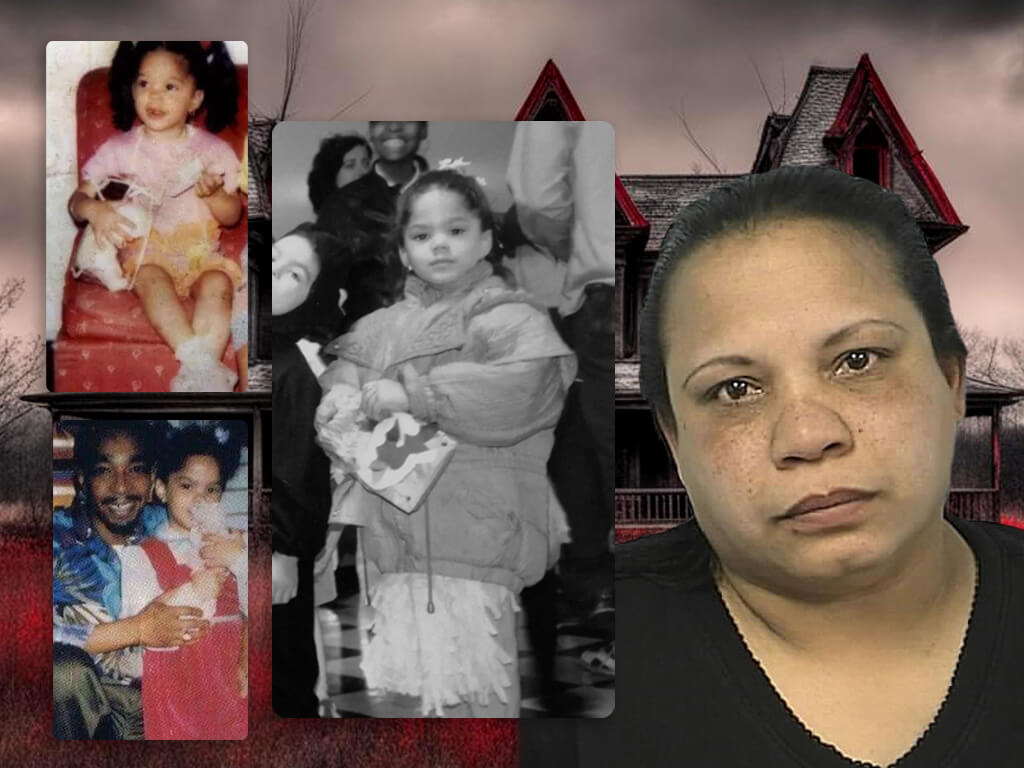Elisa Izquierdo was a sweet little girl. Only six years old but already so full of life. She loved to dance and sing, and her dad would call her his princess. However, her story didn’t have a good ending. Even though she was smart and brought joy to everyone she knew, her friends, siblings, dad, and teachers, Elisa didn’t get her fairy tale life. No, she lived in the real world in Brooklyn. And unfortunately, the real world took her from us much too early.
Awilda’s Cocaine Addiction And Pregnancy
Awilda Lopez had given birth to two children by the time she met Gustavo Izquierdo. Mr. Izquierdo, an immigrant from Cuba, worked part-time at the shelter where Ms. Lopez was residing on a temporary basis. She had previously lived in an apartment but was forced to leave along with her then-partner as they could no longer afford the rental payments.
That same year, Ms. Lopez lost custody of her two children, who were then taken into the custody of her family members. Mr. Izquierdo aspired to build a career as a professional dancer in the United States.
Awilda and Gustavo commenced a romantic partnership, though it was terminated by Gustavo upon his discovery of Awilda’s alleged struggle with cocaine use. A few months later, Awilda subsequently became pregnant and gave birth to a daughter, Elisa, with whom she and Gustavo share parentage.
Elisa Is Placed Under The Care of Her Father, Gustavo
Elisa first interacted with social services as a newborn due to her mother’s cocaine dependency. Owing to issues stemming from addiction, Awilda lost custody of Elisa, who was then placed under the care of her father. He lavished affection upon Elisa and ensured she felt cherished. Above all else, he loved her deeply and devoted considerable effort toward crafting a promising future for his daughter.
Gustavo enrolled his daughter in a private school. However, as time passed, his health declined, and he could no longer financially support a private education. Given his daughter’s strong academic performance, the school administration introduced her to one of their benefactors, Prince Michael of Greece and Denmark. After their initial meeting, the Prince pledged to cover the costs of her ongoing education.
Elisa Hated Seeing Her Mother
In the year that her daughter Elisa began attending kindergarten, Awilda started to rebuild her life. She overcame her addiction issues and secured housing. Awilda also married Carlos Lopez, a laborer, and the couple had a child together. Having demonstrated stability, Awilda regained custody of her two older children.
Furthermore, in 1991, she was granted the ability to spend time with Elisa. They met every other weekend, however, the visits with her mother created more problems than happiness for Elisa.
The teachers and Gustavo observed that each time Elisa returned from visiting her mother, Awilda, she had bruises and indications of physical harm on her person, including her private areas. Some reports state that Elisa herself said her mother routinely assaulted her and locked her in closets.
Elisa did not wish to see her mother. She began experiencing urinary issues, diarrhea, and frequent vomiting, with these symptoms most severe after returning from such visits.
Elisa’s father and several teachers notified local authorities that her mother was physically abusing her during their supervised visits. Elisa also disclosed details of the mistreatment she endured to a social worker. Gustavo petitioned the court to terminate the supervised visits. However, the court denied his request.
Gustavo had planned to fly home to Cuba with his daughter. Tragically, on the day of their scheduled departure, Gustavo passed away in the hospital. He had only recently received a diagnosis of lung cancer just days prior. This unfortunate incident changed the path forward for Gustavo’s young daughter, Elisa.
The Court Returned Elisa To Her Mother’s Custody
Upon learning of Gustav’s passing, Elisa’s mother, Awilda, promptly filed a petition with the court seeking custody of her six-year-old daughter. While the school administrators attempted to persuade the judge that Awilda did not have an appropriate background for caring for the young child, their efforts did not change the court’s decision.
The court initially granted partial custody to the mother, Awilda, despite her relapse into cocaine addiction. Elsa Canizares, a cousin of the deceased Gustavo, appealed this decision. As Gustavo’s family, Elsa wanted to care for the child and prevent the child from being in the custody of her mother, whom Elsa viewed as a negative influence.
However, Elsa did not have the financial resources to hire lawyers to represent her in the appeal. Meanwhile, Awilda was able to obtain free legal aid. At the hearing, Elsa was accused of trying to separate the child from her biological mother. It was also alleged that Elsa misled the lawyers by claiming the child wanted to be with her mother. In reality, this was not accurate. Despite the testimony of the childcare facility and the child’s guardian’s efforts to support the child’s best interests, Awilda ultimately prevailed in court and was granted full custody of the child.
The Judicial System Was Aware of Allegations of Abuse But Did Not Take Any Action
After Elisa returned to public kindergarten, staff quickly observed that she exhibited quiet behavior and bedwetting. The director noted the child experienced difficulty walking and had bruises covering the body. Large sections of hair appeared to be forcibly removed. Meanwhile, the mother directed two other children but focused nearly all acts of aggression solely toward poor Elisa.
Elisa reportedly isolated herself in a dark room, prohibited by her mother from playing with her siblings. Ultimately, kindergarten attendance ceased due to the mother becoming aware of issues raised by the school administration.
Reports from those living nearby indicated that Elisa had become isolated. Occasionally, her pleas to her mother for mercy could be heard as she apologized and pleaded for the assaults to cease. Those outcries likely coincided with instances of sexual abuse. If her screams rose too high, her mother would increase the noise level of the TV or radio to drown out the sounds.
Awilda repeatedly hit and kicked her little Elisa, forced her to drink and eat her own feces and urine, and pulled her hair and washed the floor with it. Elisa had burns all over her body, from head to legs, and was repeatedly abused, vaginally and anally, with a hairbrush or toothbrush.
Despite awareness of violence by the school and family, as evidenced by repeated complaints filed with authorities, intervention did not occur. Officials cited either insufficient evidence or failed to address complaints altogether. This lack of action ultimately led to tragedy, as young Elisa was found non-responsive in her bed by her mother on November 22, 1995, resulting in her unfortunate passing.
The Cause of Elisa’s Death
The investigation uncovered that merely two days before law enforcement being contacted, Awilda had forcefully slammed her daughter against a concrete wall. Upon impact with the wall, the daughter’s head was struck, resulting in severe brain damage associated with internal bleeding.
Following the impact, Elisa did not speak for two days, was unable to walk, and did not eat, yet her mother did not seek medical assistance. Unfortunately, the daughter ultimately succumbed to her injuries while alone and confined to her room.
Awilda Was Sentenced To Life Imprisonment
Awilda Lopez denied committing the murder and asserted her innocence. She also denied any history of domestic violence despite physical evidence to the contrary. On July 31, 1996, the court sentenced Awilda Lopez to life imprisonment with eligibility for parole after 15 years. She has been denied parole on multiple occasions. Her next scheduled opportunity for a parole hearing was in 2020.
Awilda Lopez – Where Is She Now?
Awilda Lopez first became eligible for parole way back in 2010. She finally had her parole hearing come up in January 2022, but the board decided to deny her request for parole that time around. Later on, once word got around that she was being paroled, people on the internet started acting up. This online petition on change.org got over 770 signatures against her release. But it didn’t matter, unfortunately – only the court has the final say about that kind of thing. Awilda Lopez was released in April 2022, regardless of what people signed or did.
Can you believe there’s such a monster walking around out here with the rest of us? That is seriously terrifying. But what scares me even more is the fact that they had a chance to take this thing down before, but they didn’t do anything. The courts just let it slide, and now Elisa is dead because of it. In 2022, they just let Awilda back out on the streets.
Elisa’s Law
The heartbreaking circumstances surrounding the case of Elise led to important revisions in relevant legislation. Subsequently dubbed “Elisa’s Law,” the new statute mandates transparency concerning the particulars of minors under public care administration. Previously, officials were prohibited from publicly disclosing specifics pertaining to individual situations. This constraint is believed to have contributed to several oversights that, once made, could not be rectified.
The present law aims to establish greater clarity by making full case details accessible to all interested parties. It is the assessment of many that this modified approach could help prevent tragedies similar to what sadly occurred with Elisa.








